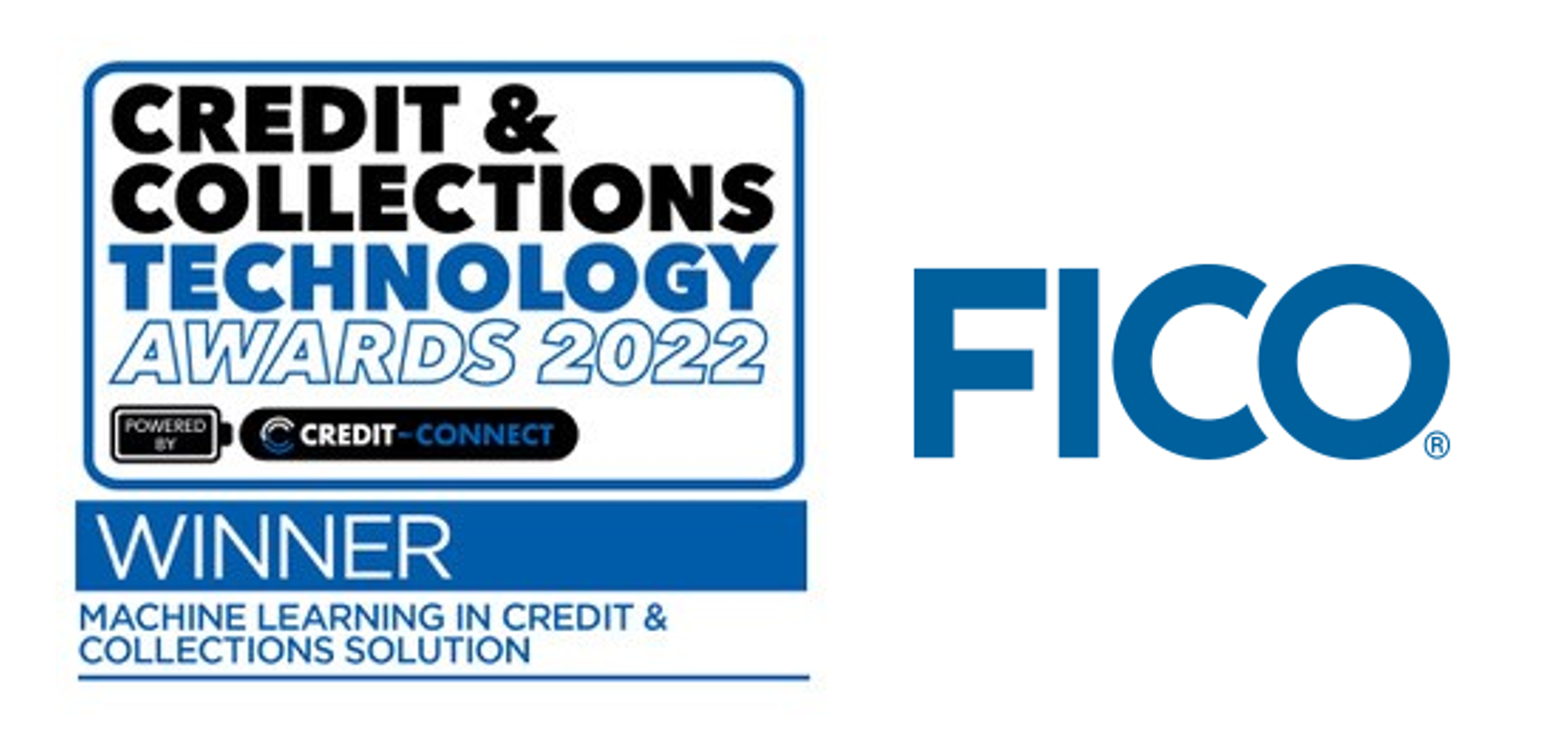Our Scams Model Just Won an Award for Machine Learning
Credit & Collections Technology Awards recognize our scams model with the award for Machine Learning - here's why

As scams grow worldwide – scams grew by 30% in two years in the UK and by 18% from 2020 to 2021 in the US – financial services institutions are looking for new tools to detect and stop them. I’ve previously discussed our company’s work on an Artificial Intelligence-based scams model for FICO® Falcon® Fraud Manager and the technology behind it. Last month this scams model won the Machine Learning in Credit and Collections Award at the 2022 Credit & Collections Technology Awards.
To build the award-winning scams model, my team had to take a different approach from our traditional work on fraud models. Scams is a first-party crime where the payment is made by the customer, not a fraudster. Many of the indicators that would provide information that a third party is taking over the account won’t work for this application, this makes traditional fraud models ill-suited to help combat the scams. We needed to create proprietary real-time machine learning techniques to build features that both confirm it’s the real customer making the payment and that there is a high probability of social engineering compared to the corpus of the customer’s entire transaction history.
Fortunately we have an ample and valuable research repository of data in the FICO® Falcon® Intelligence Network, a consortium of global payment data provided by more than 9,000 contributing companies.
One of the machine learning algorithms employed were specialized behavior sorted lists (B-list) used to identify if the transaction is a favorite and provide a probability that it’s the actual customer making the payment. B-lists monitor key attributes of an individual’s payment history and isolates similar repeated behaviors (i.e., “favorites”), thus learning what constitutes normal behavior for an individual.
Once likelihood of the payment being initiated by the true customer is determined, we needed to create a specialized machine learning model that reveals the propensity of the customer making different types of payments. This is a specialized model that incorporates customer-specific archetypes based on their payment history to date, to determine if the payment has a high propensity to be a normal, new type of transaction or has a high propensity of being an abnormal, potential scam payment. Propensity learning models are not just for marketing; they are a critical tool in classifying a new transaction, and are individualized to each customer’s unique transaction history – much like a traditional marketing offer based on all your unique spending behavior.
The Scam Detection Score based on machine learning detects 50% more scam transactions at a 0.5% transaction review rate than the Falcon Retail Banking fraud score. When a customer is using a favorite device or computer, the new Scam Detection Score identifies 24x the number of scam transactions than a standard fraud detection model, thus providing far better protection.

Our company is proud of this award, and of the power our machine learning model provides in tackling these abhorrent scams crimes.
How FICO Can Help You Stop Scams
- Learn more about our scams model
- Read about stopping scams with AI and machine learning
- Explore all our fraud prevention and detection offerings
Popular Posts

Business and IT Alignment is Critical to Your AI Success
These are the five pillars that can unite business and IT goals and convert artificial intelligence into measurable value — fast
Read more
Average U.S. FICO Score at 717 as More Consumers Face Financial Headwinds
Outlier or Start of a New Credit Score Trend?
Read more
Average U.S. FICO® Score at 716, Indicating Improvement in Consumer Credit Behaviors Despite Pandemic
The FICO Score is a broad-based, independent standard measure of credit risk
Read moreTake the next step
Connect with FICO for answers to all your product and solution questions. Interested in becoming a business partner? Contact us to learn more. We look forward to hearing from you.
